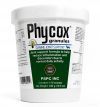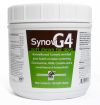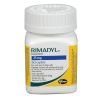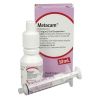California Pet Pharmacy (CPP Pet Care) Terms and Conditions
By accessing and using CaliforniaPetPharmacy.com (CalPetRx.com) you agree to each of the terms and conditions set forth herein ("Terms and Conditions"). These Terms, together with applicable additional terms and conditions referenced below, are referred to as "User Agreement." If you do not agree with these Terms, you may not access the Site.
We reserve the right to revise these Terms at any time. As such, you should check these Terms periodically. Changes will not apply to any orders we have already accepted unless the law requires otherwise. If you violate any of the terms of these Terms you will have your access canceled and you may be permanently banned from accessing the Site. If you access the Site after we have posted changes to these Terms, such access shall constitute your acceptance of those changes, whether or not you actually reviewed them.
CaliforniaPetPharmacy.com, including all of its contents, such as text, images, and the HTML used to generate the pages, are our property or that of our suppliers or licensors and are protected by patent, trademark and/or copyright under United States and/or foreign laws. Except as otherwise provided herein, you may not use, download, upload, copy, print, display, perform, reproduce, publish, modify, delete, add to, license, post, transmit, or distribute any such materials from CaliforniaPetPharmacy.com in whole or in part, for any public or commercial purpose without our specific written permission. We grant you a personal, non-exclusive, non-transferable license to access CaliforniaPetPharmacy.com and to use the information and services contained on the website subject to your compliance with these Terms. In turn, you grant us a non-exclusive, royalty-free license to use any content you post on the Site for any purpose, subject to the express provisions of these Terms.
Description of Services
We make various services available on this site including, but not limited to, the sale of animal health pharmaceuticals, human pharmaceuticals, and related products for small animal, equine, livestock, avian, farm, lagomorphs, rodent pets and other like services. You are responsible for providing, at your own expense, all equipment necessary to use the services, including a computer, modem, and Internet access (including payment of all fees associated with such access).
Placing an Order
In order to place an order for some of the items on CaliforniaPetPharmacy.com, you will be required to complete our online order form, which requires certain information and data. By placing an order, you agree that all information provided in the order form is true and accurate and that you will take the initiative to maintain and update this information as required in order to keep it current, complete, and accurate.
Terms of Sale
Terms of Sale (“Agreement”) apply to your purchase of products, medications, and supplies sold to you by California Pet Pharmacy. You agree to these terms by placing your order. If you have already placed your order and no longer want to be bound to this Agreement then you must promptly cancel your order by calling 877.554.4797. Please act promptly and note that canceling an order may carry a cancellation fee, restocking fee, or other fees. If you have placed an order for a prescription drug without providing lawful veterinary medical information you will assessed a $10 order cancellation fee.
California Pet Pharmacy strives to communicate accurate pricing and product information but will not be held responsible for any pricing, typographical, 3rd party coupons, 3rd party advertised pricing, or other errors in such communications. Products on our website are subject to change without notice. Our website contains a large number of products and it is possible that, despite our best efforts, some of the products listed on our Site may be incorrectly priced, the quantity or availability of a product may have changed just prior to you placing your order or other errors may be displayed on the product page. We will normally verify prices, availability and confirm there are no errors on the product page as part of our dispatch procedures.
On occasion, you may be able to submit your order for processing, but your order is subsequently canceled due to unavailability of product. You acknowledge that products may sell quickly and there may be a short period of time after an order has been submitted, where the product is no longer available. You agree that we may cancel your order after you have received a confirmation email without penalty. Your order is subject to cancellation by California Pet Pharmacy, by our sole discretion. Payment must be received by California Pet Pharmacy prior to shipping of an order. California Pet Pharmacy may process payment for and ship items of an order separately.
California Pet Pharmacy will use your email address from time to time to update you on any promotions, discounts, and product updates. We do not sell your information to marketing companies.
Terms of Return
When placing a prescription item order with California Pet Pharmacy you acknowledge the FDA and California Board of Pharmacy guideline for pharmacies on pharmaceutical returns. You waive your right to return a prescription item, seek reimbursement for a no longer needed prescription item, and waive your right to file a dispute with your credit card provider for reimbursement. If you have already placed your order and no longer want to be bound to this agreement then you must promptly cancel your order by calling 877.554.4797. Please act promptly and note that canceling an order may carry a cancellation fee, restocking fee, or other fees. Once a prescription order has shipped it is the property of the client and cannot be returned. If you are looking for a specific expiration date for a product, we advise you to call us before placing your order. In the event the item you ordered is a prescription you will not be able to return your order if the expiration date is not to your satisfaction.
An order for a prescription item must be canceled before shipping. We do not accept returns of prescription items. Please reference the following link to learn more. https://www.fda.gov/ICECI/ComplianceManuals/CompliancePolicyGuidanceManual/ucm074399.htm
A 10% cancellation fee will be applied to orders that have already been filled by our pharmacy staff.
Returns of non-prescription goods may be made within 2 weeks of the acquisition of the shipped goods. Only unopened/unused non-prescription goods will be refunded minus shipping and a 20% restocking fee.
In order to return an item, you will need to request a Return Authorization Number from our customer service department at 877.554.4797.
Shipping
The term shipping or ship includes the commencement of shipping items in an order for multiple purchases or where the item purchased consists of components that must be shipped separately. For example, your order may consist of (1) several different items, (2) a quantity of the same item, or, (3) a single item with several component parts the size of which might require them to be shipped in separate packages. In all such orders, we endeavor to ship out individual packages together so that they arrive at the same time; however, when that is not possible, we commence shipping by shipping individual packages in the order the soonest they are available and conditions permit. In these instances, our notification to you that your order has “shipped,” marks the time when shipping has commenced; it does not mean that all items in the order have shipped at that time. All packages sent have a separate tracking number and may be followed on the Order Status page.
Orders are shipped without signature confirmation unless otherwise noted. By placing an order with California Pet Pharmacy you acknowledge this. The customer may add signature confirmation to the shipment at an additional fee. If signature confirmation is needed, please contact 877.554.4797 prior to your order shipping. If your order is above $300, it will automatically ship with a signature required for delivery.
All orders containing a controlled substance must be shipped with signature confirmation, and an adult must be present to sign for the package. There will be no exceptions made. The cost for the signature delivery is incorporated into the price of the product.
Inclement Weather
If you live in a region that exhibits extreme hot or cold temperatures we recommend you choose the express overnight shipping method. California Pet Pharmacy is not responsible if the content(s) of your package undergo inclement weather as this is out of our control. It is the client’s responsibility to consider current weather conditions when ordering medications. If arrangements need to be made on a particular shipping service or shipping method, it is the client’s responsibility to contact our customer service line at 877.554.4797 to discuss how we can help make arrangements. Additional charges may be applied at that time.
Please Note: Most prescription products require storage at room temperature unless otherwise stated.
Order Processing time (Prior to shipping)
Over the counter orders are typically processed within 24-72 hours, given stock is available. Prescription orders require confirmation by your prescribing veterinarian. We generally contact vets within 24 business hours of the order being placed. We request that vets respond to the request within 24 hours, but sometimes the process can take longer, depending on the veterinarian. Once prescription authorization is received, the order will be processed and shipped within 24-72 business hours.
Communications
Telephone communications with us, including calls with any of our agents are routinely monitored and/or recorded. You expressly consent, on behalf of yourself and other authorized agents of your phone number, to being monitored or recorded. By providing us with a phone number (including mobile) as your contact number, you expressly authorize us to contact you regarding your account for communication.
Our primary method of contact is via email. Emails are sent for the purpose of order status updates, product updates, shipping confirmations, and prescription authorization updates. If a customer does not routinely monitor their email and would prefer a phone call, they must let us know when placing an order.
Limitation of Warranty & Liability
Although California Pet Pharmacy reserves the right to correct any errors, omissions, or inaccuracies, we do not accept any responsibility for the accuracy, reliability or completeness of any information, content, materials, services, products, merchandise, functionality or other resources on the website, even typographical or imaging errors, including the substance, accuracy, of any product information listed on the website. Further, we do not represent that the website will operate without interruption or error, nor do we provide any assurances of the availability or usability of the online shopping services.
California Pet Pharmacy does not accept any liability for the consequences arising from the application, use, or misuse of any products contained on or made available through the website, including any injury and/or damage to any pet, person or property as a matter of product liability, negligence, or otherwise.
California Pet Pharmacy further disclaims any responsibility for the accuracy, reliability, currency, availability, or completeness of any information or advertising found on any third-party sites that link to or from the California Pet Pharmacy website. California Pet Pharmacy also does not accept any responsibility for product failures, interactions, side effects, and allergies. All cases for the aforementioned must be handled by the manufacture of the product and we encourage reporting to the FDA website.
https://www.accessdata.fda.gov/scripts/medwatch/index.cfm?action=reporting.home







